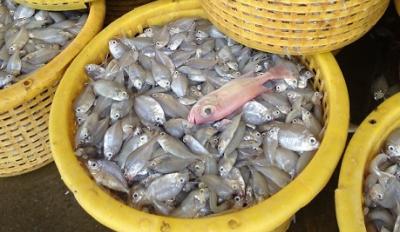
Publication Date:
March 7, 2016
Egregious labor rights abuses, including forced labor and human trafficking, have been documented across Thailand’s seafood sector in dozens of reports over more than a decade. Recently, unprecedented international attention on Thailand’s seafood industry, particularly the plight of migrant workers who make up the majority of the workforce, has prompted a flurry of action from governments, exporters and Western brands that sell Thai seafood.
Despite the growing number of government and industry initiatives, migrant workers in Thailand remain as vulnerable to abuse as ever. New corporate supply chain monitoring programs are applying a failed CSR model that lacks genuine worker feedback and representation. Meanwhile, Thai labor law continues to prohibit migrant workers from organizing trade unions and thus seeking to bargain collectively with employers for better wages and working conditions.So even as global brands invest more resources into improving their monitoring initiatives, they are unlikely to achieve significant change to conditions on the ground, as the failures of the same model applied in other sectors have demonstrated. As long as workers do not have the power to hold employers and the global corporations that ultimately dictate prices accountable, these human rights abuses will continue.
This report highlights current worker-driven efforts to improve working conditions in Thailand’s seafood export industry. It presents case studies from one grassroots organization, the Migrant Workers Rights Network (MWRN) that, despite the limitations on unionization, is organizing migrant workers to negotiate for better conditions in their own workplaces and changing factories from the inside. These case studies demonstrate how worker-driven solutions have effectively resolved some of the most common abuses faced by migrant workers in Thailand. They should be used as a guide by industry and government leaders looking for long-term solutions to the human trafficking problem in Thailand.
After a brief overview of the problems migrant workers face, the report will explain how MWRN is working to overcome challenges and making demonstrable progress in changing conditions within the seafood industry. Through this presentation of MWRN’s work, we illustrate the positive outcomes achieved when workers are able to negotiate better working conditions and terms of employment. The successes of MWRN, which is migrant-led and migrant-organized, highlights the capacity of migrant workers to improve their own conditions and workplaces when given the chance.


